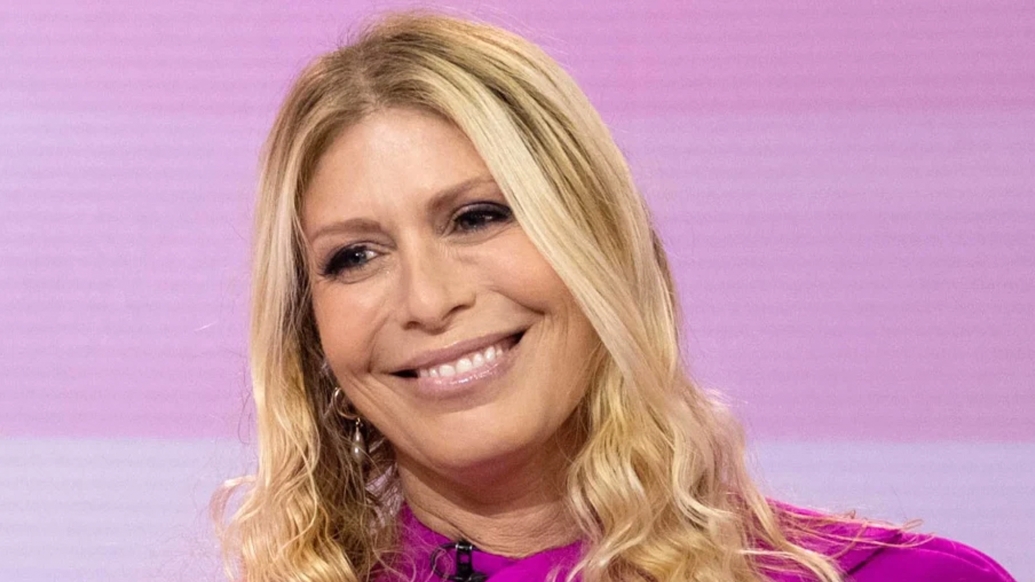Why the TODAY show star is using her platform to advocate for cancer genetic screening
2:18 PM
Author |

TODAY show contributor Jill Martin was diagnosed and treated for breast cancer in 2023.
Now, the University of Michigan alum has become an influential cancer advocate.
In this Q&A, Jill shares what she wants people to know about her journey and the importance of early cancer screening.
How did your journey with cancer begin?
Martin: I found out I had cancer June 26th at 3:30 p.m., but the way it happened is still surreal to me.
Just three weeks before, in between calls, I had taken a genetic test.
I literally spit into a tube and mailed it in.
Then I forgot about it.
For background, my grandmother passed away from breast cancer. And my beautiful mother, who is healthy now, had a double mastectomy in her late 40s after being diagnosed with ductal carcinoma in situ.
She had been tested for the BCRA mutation and didn’t have it, but I didn’t realize you could get the gene from your father’s side, that is, until I got the call.
That day I was told I had a BCRA 2 mutation, and my doctors advised me to get preventive surgery since I had a 60-90% chance of getting breast cancer.
Those were odds I wasn’t willing to take.
I had a clean mammogram the day I was diagnosed, and a clean sonogram months before, but – as I now know – no test is perfect.
These are still the best tests we have, but my cancer went undetected.
See Also: When genetic testing can help the whole family | Michigan Medicine
When I went in for the MRI to prepare for my preventive surgery, they found aggressive cancer.
That’s when my journey began.
Today, although I am finished with my six planned surgeries, chemotherapy and radiation, I’m still on two “safety net” pills that have many side effects.
What made you decide to be so open about your breast cancer journey?
Martin: I didn’t feel like there was an option.
We share everything on the TODAY show: the good, the bad, the ugly, the hard.
With my platform, I felt I had a responsibility to not only raise awareness but also to acknowledge other people going through something similar that may not have the ability to share in the way that I can.
People ask if it was hard sharing my personal journey so publicly, but publicly.
But honestly, it wasn’t.
It actually, I think, made it easier.
So many suffer in silence and fight battles no one knows about.
Most people treated me with such empathy and care.
I didn’t maintain two separate lives, which happens to a lot of people who keep their experiences private.
For me, sharing my journey and helping others has been the light that has gotten me through the worst of times.
Some say you tell a different story once you’ve healed, so I choose to live, love, suffer, laugh and enjoy the good and bad times publicly.
Why are you focusing your message on early detection and genetic screening?
Martin: I look at baby pictures of me and think, “I had the gene there.”
Had I known I had the mutated gene, I would have had the preventive surgery and would have taken the appropriate measures and likely could have avoided getting cancer.
That’s why I am screaming it from the rooftops: If you have cancer of any kind in your family – women and men – please ask your doctor if genetic testing is appropriate for you.
If I can save just one more life by telling my story, it’s all worth it to me.
One particular story of someone getting tested–and I have heard from thousands now–hits particularly close to home.
My roommate from the University of Michigan got tested after seeing and hearing my story.
She found out she had the BCRA 2 mutation, also from her dad’s side.
Had she not been tested, her chances of developing breast cancer were extremely high.
She thanks me every day for saving her life and the life of her daughters.
What do you hope to see breast cancer researchers achieve with help from fundraisers like yours?
Martin: One of the silver linings out of this horrific year was the launch of my new brand, BY JILL MARTIN. It gives me a vehicle to talk about genetic testing on many platforms.
SEE ALSO: How Hereditary Genetic Testing Results Impact Breast Cancer Treatment
I’m grateful that my alma mater, the University of Michigan, along with The M Den Shop has allowed us to turn the “M” pink so that we can engage more people in conversations like this.
What message do you have for other women undergoing cancer treatment?
Martin: My advice for anyone going through cancer, or any trauma, is to ask for help when you need it.
Concentrate on the silver linings, as hard as that is sometimes, and make a decision to get up every day, when you can. Keep moving. And be gentle to yourself through the ups and downs of the process.
In honor of Breast Cancer Awareness Month this October, 10% of net sales from the Jill Martin Pink M collection will support breast cancer research at the University of Michigan Health Rogel Cancer Center.
Sign up for Health Lab newsletters today. Get medical tips from top experts and learn about new scientific discoveries every week.
Sign up for the Health Lab Podcast. Add us wherever you listen to your favorite shows.

Explore a variety of health care news & stories by visiting the Health Lab home page for more articles.

Department of Communication at Michigan Medicine
Want top health & research news weekly? Sign up for Health Lab’s newsletters today!





